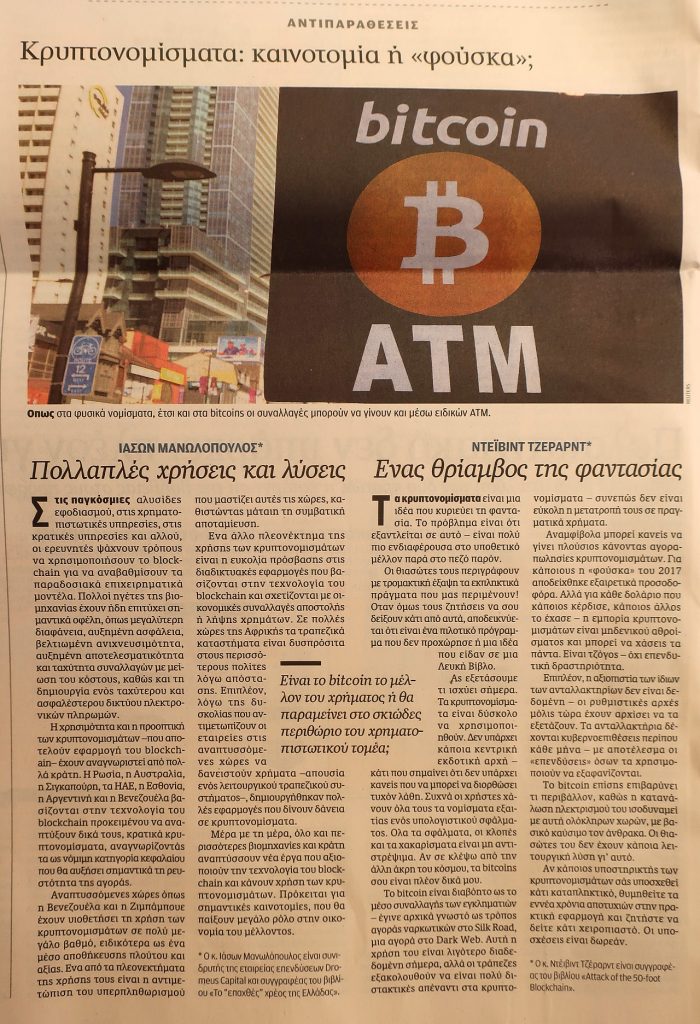My piece in yesterday’s Kathimerini is now up on the newspaper site.
I’m told the translation gets my ideas across accurately. Kathimerini opinion editor Yannis Pailiologos arranged all this and did the translation.
And the name of the book is at the bottom, of course!
My text is brief and abbreviated, but the brief was 350 words only, so please excuse the lack of extensive citations after every point …
Jason Manolopoulos‘ pro-cryptocurrency piece started life in Greek and there’s no English version, but you’ll get the idea from the Google and Microsoft translations.
The pull quote, “Είναι το bitcoin το µέλ-λον του χρήµατος ή θα παραμείνει στο σκιώδες περιθώριο του χρηµατο-πιστωτικού τομέα;” is approximately: “Is bitcoin the future of money or will it remain in the shadowy margins of the financial realm?”
(Yes, it appears the Greek word for “bitcoin” is “bitcoin,” in the Latin alphabet.)
Below is what I sent them, edited to what they used.
A triumph of the imagination
Cryptocurrencies are a powerful idea that captures the imagination. The biggest problem is that this is most of what they do — they’re much more interesting in the hypothetical future than they are in the mundane present.
Advocates will describe with tremendous excitement the amazing future that awaits us! You ask them to show you something, and it turns out to be a pilot programme that didn’t go forward, or just an idea they saw in a white paper.
So let’s look at the present day. Cryptocurrencies are hard to use. There’s no central authority — which means there’s no-one who can fix mistakes. Losing all your coins to a computer error happens far too often. All errors, thefts and hacks are final. If I steal your coins from around the world — those are my bitcoins now.
Bitcoin was famously used by criminals — it originally came to fame as the way to buy drugs on the Silk Road darknet market. This usage is less common now, but banks are still very reluctant to touch cryptocurrencies — so it’s not easy to convert them into actual money.
You can get rich trading cryptocurrencies! Some did very well in the 2017 crypto bubble. But every dollar someone made, someone else lost — crypto trading is zero-sum, and you can lose everything. Treat it as gambling — not investment.
You can’t trust the crypto exchanges themselves to be reliable — financial regulators have only just started looking closely at them. Exchanges are hacked approximately monthly — and then your money is gone.
Bitcoin also uses as much electricity as entire countries, mostly powered by coal. Advocates have no plausible solutions for this.
Whenever a crypto advocate promises something amazing — remember that crypto has a nine-year record of failure to produce useful results. Ask to see their thing working well, right now, in the present. Promises are free.
Thanks to Ariel Glenn for the photo.
Your subscriptions keep this site going. Sign up today!

